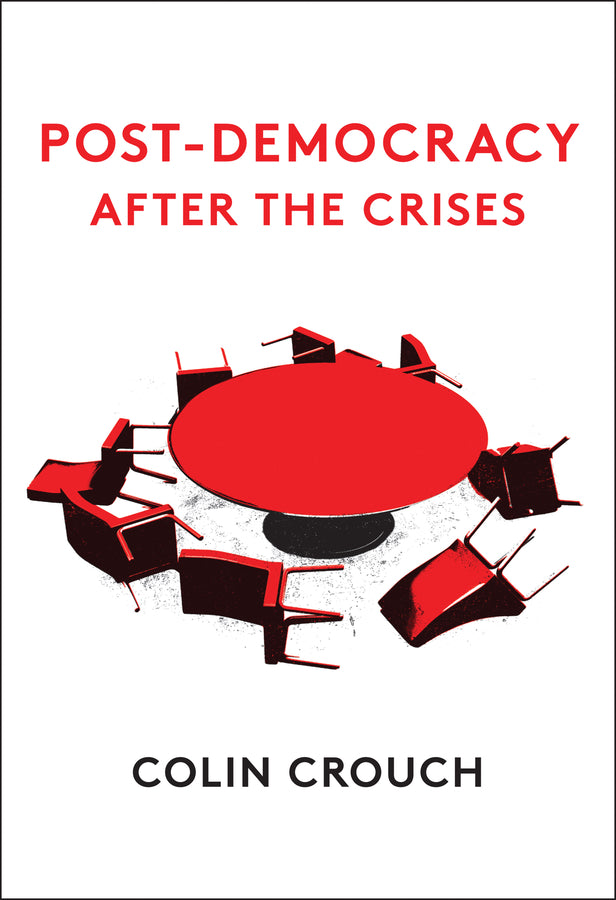Description
Explore the depths of modern governance with "Post-Democracy After the Crises." Authored by prominent political scientist Colin Crouch, this insightful book delves into the decline of democratic principles in advanced societies, highlighting the impact of wealth, power, and the media on democracy. Crouch revisits his groundbreaking thesis from "Post-Democracy" (Polity, 2004), arguing that despite the facade of robust democratic institutions, significant erosion has taken place. Wealthy elites wield more power than ever, stifling genuine democratic engagement and giving rise to challenges from populist movements fraught with anti-democratic sentiments. This 200-page book, published by John Wiley & Sons in 2020, addresses the critical repercussions of a global financial crisis, prevalent xenophobia, and the manipulative roles of social media in orchestrating public opinion. Through thorough analysis and reflection, Crouch emphasizes the need for resilient democratic institutions amidst challenging contemporary landscapes. Whether you're a student of political science, an avid reader of sociology, or a concerned citizen, this book is essential for understanding the complexities of today's political climate. Immerse yourself in a critical discourse that confronts the realities of a post-democratic world and the imperative for change. Note: Shipping for this item is free. Please allow up to 6 weeks for delivery. Once your order is placed, it cannot be cancelled. Condition: BRAND NEW. ISBN: 9781509541577. Year: 2020. Publisher: John Wiley & Sons (UK). Pages: 200.
Note: Shipping for this item is free. Please allow up to 6 weeks for delivery. Once your order is placed, it cannot be cancelled.
Condition: BRAND NEW
ISBN: 9781509541577
Year: 2020
Publisher: John Wiley & Sons (UK)
Pages: 200
Description:
In Post-Democracy (Polity, 2004) Colin Crouch argued that behind the façade of strong institutions, democracy in many advanced societies was being hollowed out, its big events becoming empty rituals as power passed increasingly to circles of wealthy business elites and an ever-more isolated political class.Crouch™s provocative argument has in many ways been vindicated by recent events, but these have also highlighted some weaknesses of the original thesis and shown that the situation today is even worse. The global financial deregulation that was the jewel in the crown of wealthy elite lobbying brought us the financial crisis and helped stimulate xenophobic movements which no longer accept the priority of institutions that safeguard democracy, like the rule of law. The rise of social media has enabled a handful of very rich individuals and institutions to target vast numbers of messages at citizens, giving a false impression of debate that is really stage-managed from a small number of concealed sources. Crouch evaluates the implications of these and other developments for his original thesis, arguing that while much of his thesis remains sound, he had under-estimated the value of institutions which are vital to the support of a democratic order. He also confronts the challenge of populists who seem to echo the complaints of Post-Democracy but whose pessimistic nostalgia brings an anti-democratic brew of hatred, exclusion and violence.
Note: Shipping for this item is free. Please allow up to 6 weeks for delivery. Once your order is placed, it cannot be cancelled.
Condition: BRAND NEW
ISBN: 9781509541577
Year: 2020
Publisher: John Wiley & Sons (UK)
Pages: 200
Description:
In Post-Democracy (Polity, 2004) Colin Crouch argued that behind the façade of strong institutions, democracy in many advanced societies was being hollowed out, its big events becoming empty rituals as power passed increasingly to circles of wealthy business elites and an ever-more isolated political class.Crouch™s provocative argument has in many ways been vindicated by recent events, but these have also highlighted some weaknesses of the original thesis and shown that the situation today is even worse. The global financial deregulation that was the jewel in the crown of wealthy elite lobbying brought us the financial crisis and helped stimulate xenophobic movements which no longer accept the priority of institutions that safeguard democracy, like the rule of law. The rise of social media has enabled a handful of very rich individuals and institutions to target vast numbers of messages at citizens, giving a false impression of debate that is really stage-managed from a small number of concealed sources. Crouch evaluates the implications of these and other developments for his original thesis, arguing that while much of his thesis remains sound, he had under-estimated the value of institutions which are vital to the support of a democratic order. He also confronts the challenge of populists who seem to echo the complaints of Post-Democracy but whose pessimistic nostalgia brings an anti-democratic brew of hatred, exclusion and violence.

